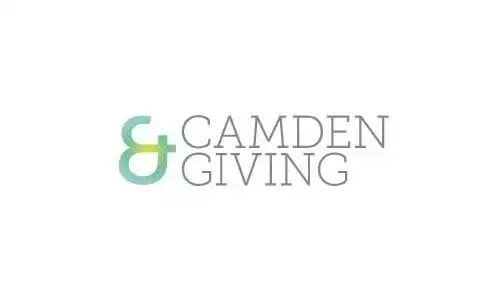Why Camden Giving chose a one page grant application form
The other day I was trying to think of a time that I have enjoyed filling in a form. I have probably filled in hundreds, if not thousands. I did enjoy filling in my marriage certificate form when I got married, but even then I think I was looking forward to getting to the food and chatting part.
I’m sure there are people who like forms, they may the same people who like prawn cocktail flavoured crisps, but who knows?
I am the Director of Camden Giving, a small organisation set up this year to invest money and other resources in projects that overcome inequalities in the Borough of Camden. We do this by bringing together knowledge and resources from businesses, charities, residents and the public sector. This means giving out money and yes, it means forms! Forms create a number of problems for Camden Giving.
1. Forms = opportunities for spin
The projects that are good at application forms are not necessarily the ones that are the best projects, they are sometimes the best at spinning it. We want to invest in great ideas driven by passionate people who change communities regardless of whether or not they’ve got a knack for writing a good funding application.
2. Forms = time for applicants
Forms take time. Time that busy organisations don’t have. So we are losing great applicants because they just can’t fill in another form. It’s the same reason I haven’t sold my old clothes on eBay, I haven’t had time to sit down and do the admin. The input doesn’t justify the output.
Advertisement
3. Forms = time for funders
Forms don’t just mean lost hours for the applicants, Camden Giving needs to process those applications, it all takes time and someone needs to be paid for that time. It’s in our best interest not to generate unnecessary paperwork.
So how can we make the application process a bit less painful and make sure we are attracting amazing projects?
One page of A4
Camden Giving’s current application form for grants of £100-£1,000 is one A4 page long, and it should take organisations around half an hour to complete. It is proportional to the amount of money being applied for: a small grant should only require a small application form. We’ve achieved this by really challenging every question that we wanted to ask:
- Do we have a legal obligation to ask this?
- Do we need to know this in order to assess the application?
It was exciting how quickly questions started falling off.
Forms and inequality
Our mission is to overcome inequality in Camden and one of our challenges is that people’s abilities to complete application forms is unequal. We are working with Camden businesses to ensure that we can support applications from those who have a great idea, but are not used to getting it on paper.
Later this year we will open small grant applications that will stay open for two years, so projects can apply for the things they need when they need them. If an organisation needs to buy a bit of equipment, or fund a small project, they shouldn’t have to wait to fit in with Camden Giving’s calendar.
More than one page?
Of course, there are times when Camden Giving will need more than a one page application form.
We are introducing two-stage applications for larger amounts of money, where organisations will complete a short form, then only be invited to complete a longer one if there is a reasonable chance of being funded. Ultimately this will mean that people spend less time doing paperwork for grants that they aren’t going to get.
We haven’t quite made our application forms as fun as signing your marriage certificate: we would need champagne and true love for that. But we are working on it and we want to hear about examples of great application forms, so please get in touch.
Camden Giving’s current round of funding is open until the 18th August 2017.
Natasha Friend is director of Camden Giving.




